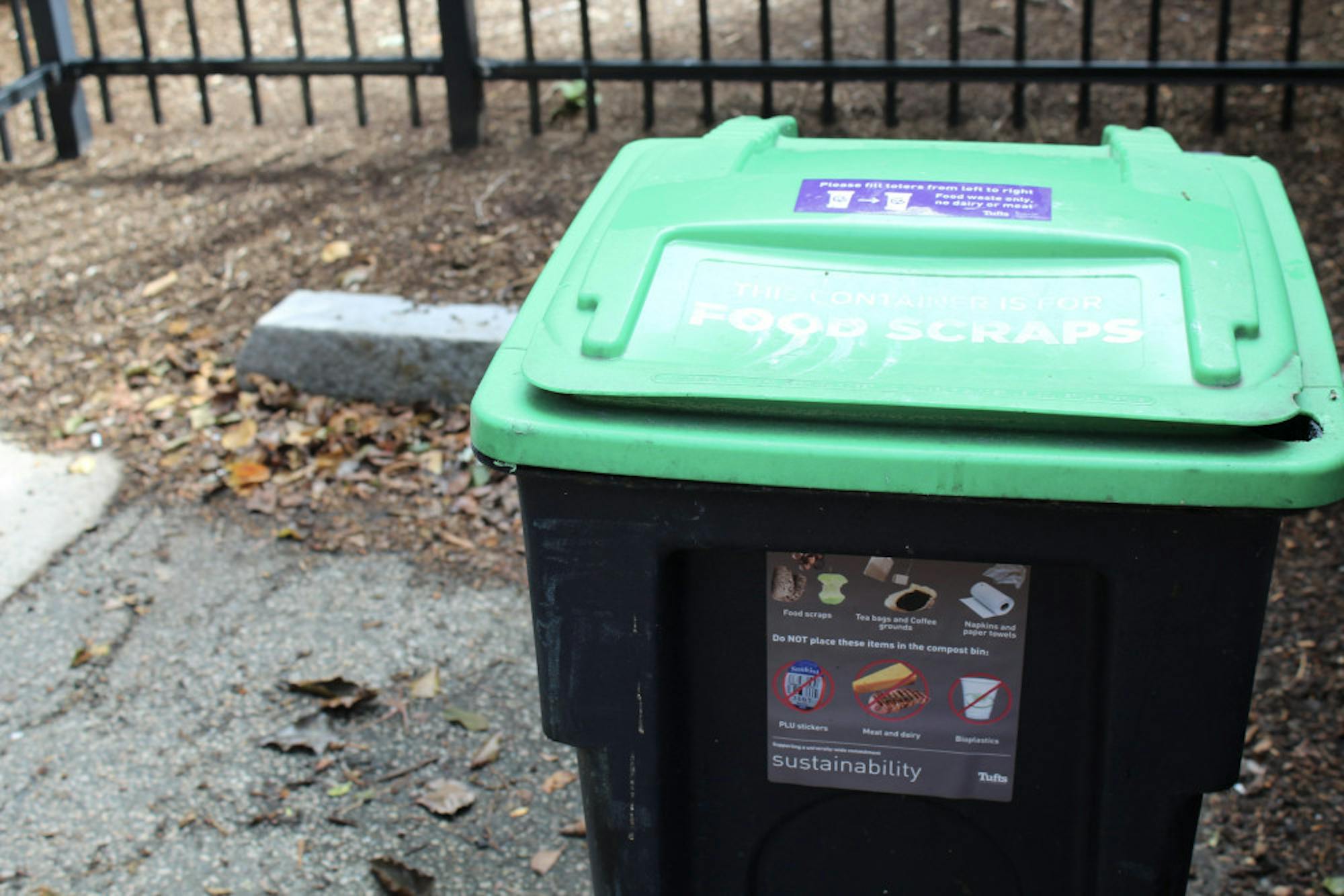Reducing food waste while supplying hungry students with free snacks? Talk about a two-in-one. Tufts’ “free food” email list, spearheaded by the Eco Reps group, resumed operation earlier this month after a pandemic-induced hiatus, and in just a few weeks, the email group has already offered up pastries from Tatte and Sugar and Spice as leftover food from community events.
The Eco Reps believe the program meshes well with their mission of reducing food waste and promoting sustainability.
“It’ll definitely help with post-consumer food waste,” said junior ShaSha Kingston, an Eco Reps assistant coordinator. “It’s also a great alternative to putting [food] in the compost or landfill, especially because college kids love free food.”
As a coordinator for the dining hall branch of the Tufts Food Rescue Collaborative, junior Evy Miller-Nuzzo has seen firsthand how food catering for large events can sometimes leave lots of extra food behind.
“I've seen many instances of students showing up to a dorm or house with dozens of sandwiches/snacks/etc. that their event didn't finish,” Miller-Nuzzo wrote in an email to the Daily.
Junior Alexander Terwogt, secretary of the European Student Association, agrees.
“Quite a few events do have leftover food where [club members] give out … calls to friends to be like, ‘Oh, there's food left!’,” Terwogt said.
Those providing free food via the e-list are asked to consider ways the food can be properly stored until students can pick it up. Without proper food storage, participants eat at their own risk.
Tufts Dining, which provided guidance on food safety when the list was first created, advised students that if food hasn’t been at a proper temperature for storage (typically either below 40ºF or above 140ºF) for more than four hours, it’s not considered safe to eat. Tufts Dining Director Patti Klos recommends that those providing food send a message promptly.
“Anyone who wishes to use the Free Food e-list should do so as soon as possible to allow people to pick up and consume the food during the safe window of time,” Klos wrote in an email to the Daily.
Some students, like senior Emmeline Meyers, have less ability to quickly access campus events with extra food.
“It sounds like a lot of fun, but I live pretty far off campus,” she said. “So it might be hard for me to get to a lot of the events, but it might be something that I'm interested in.”
The e-list predates the pandemic, having existed since at least 2017, according to Klos. The announcement mentions that the e-list is run by the Tufts Community Union Senate and Tufts Food Rescue Collaborative. Current members of the TCU Senate and club leaders in Tufts Food Rescue Collaborative do not know who in their respective organizations was involved in the creation of the e-list in the past.
Miller-Nuzzo sees potential in the renewed use of the e-list.
“Hopefully this list will help divert food waste to students who could use it,” she wrote. “I hope to sign up and contribute, but since I'm not actively food insecure I'll probably step back from receiving food so that others with more need can take that opportunity.”
In addition to redistributing extra food, Kingston thinks the community can avoid generating waste from events.
“Hopefully people will order the right amount so there won’t be so much excess and we aren’t over-ordering to begin with,” she said. “In times where there is too much, I think [the e-list] will definitely help.”






